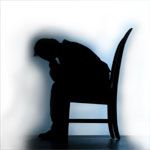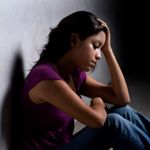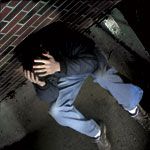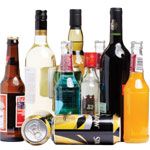 Depression is a serious illness, but it can be treated. Don’t be shame – ask for help.
Depression is a serious illness, but it can be treated. Don’t be shame – ask for help.
Depression is more than just feeling a bit blue or sad – it’ a real and serious illness.
Depression is one of the most common of all mental health problems. One in five people experience depression at some stage of their lives – one in four females and one in six males.
Around one million Australian adults and 100,000 young people live with depression each year.
While we all feel sad, moody or a bit low from time to time, some people experience these feelings really strongly, for long periods of time and often without having any reason.
People with depression find it hard even just doing everyday things, and can sometimes even stop doing things that used to make them happy or that they used to enjoy.
If you have depression, you really need to talk to someone about it. Your doctor can help you. They might suggest you see a counsellor, or they might suggest you take anti-depressants.
I HEARD IN THE NEWS RECENTLY THAT ANTI-DEPRESSANTS DON’T WORK. IS THIS TRUE?
Yes, there have been stories in the news about new research into certain types of antidepressants which said maybe anti-depressants weren’t as effective as once thought, and that maybe they were no better than a placebo (a dummy pill).
But this is only one study, and there are many, many different kinds of patients and anti-depressants.
Associate Professor Michael Baigent, Clinical Adviser to beyondblue: the national depression initiative, says that there are years of clinical experience and good evidence to show that antidepressants can be effective – and that psychological therapies are also effective in treating depression.
“As clinicians, we have known for a long time that not everyone responds in the same way to antidepressants,” he says. “It’s important to get the full picture. Not everyone with depression needs antidepressant medication to recover, but many people do.”
He advises that if you are taking any of the antidepressants mentioned in the study, don’t be alarmed.
If the medication is helping you, don’t worry. The research is not saying there is a problem with these antidepressants, so do not stop taking them suddenly.
“If however, you are not responding to the treatment in the way you’d hoped, go back and talk it over with your doctor,” Associate Professor Baigent says.
“People don’t always respond to the first antidepressant prescribed – so you need to continue the treatment until you’re well.
“It can take months for people to recover from depression and often people recover with psychosocial treatments (talking therapies), lifestyle changes and if indicated, medication.”
To find out more about anti-depressants, go to www.beyondblue.org.au
YOU CAN ALSO DO THINGS TO HELP YOURSELF.
If you’re depressed, it’s very important that you talk to someone about it and seek help. But there are also things you can do to help yourself feel a little better.
Try to stay away from drugs and alcohol, because even though it might seem like they could make you feel better, they’ll only end up making you feel worse. Possibly a lot worse.
Try to get enough sleep, if you can. Having trouble sleeping is quite common among people with depression, but if you can get enough quality deep sleep, you can still feel rested
Most deep sleep occurs during the first five hours after falling asleep at night. Even if a person sleeps for only four or five hours, they’ll still get about the same amount of deep sleep as someone who sleeps for eight to 10 hours.
You should also try to keep active and get lots of exercise, even if it’s only gentle exercise, like walking. Exercise can relieve stress, can help you sleep and can boost your mood.
For more information about depression, symptoms, treatment and ways to help yourself and others, head to www.beyondblue.org.au
If you need counselling or need urgent help please phone Lifeline on 13 11 14
Other help and information lines are also available:
beyondblue info line – 1300 22 4636
Just Ask Rural Mental Health Information & Referral Line – 1300 13 11 14
SANE Australia Helpline – 1800 187 263
Mensline Australia – 1300 789 978
Kids Helpline – 1800 551 800.






Comments are closed.